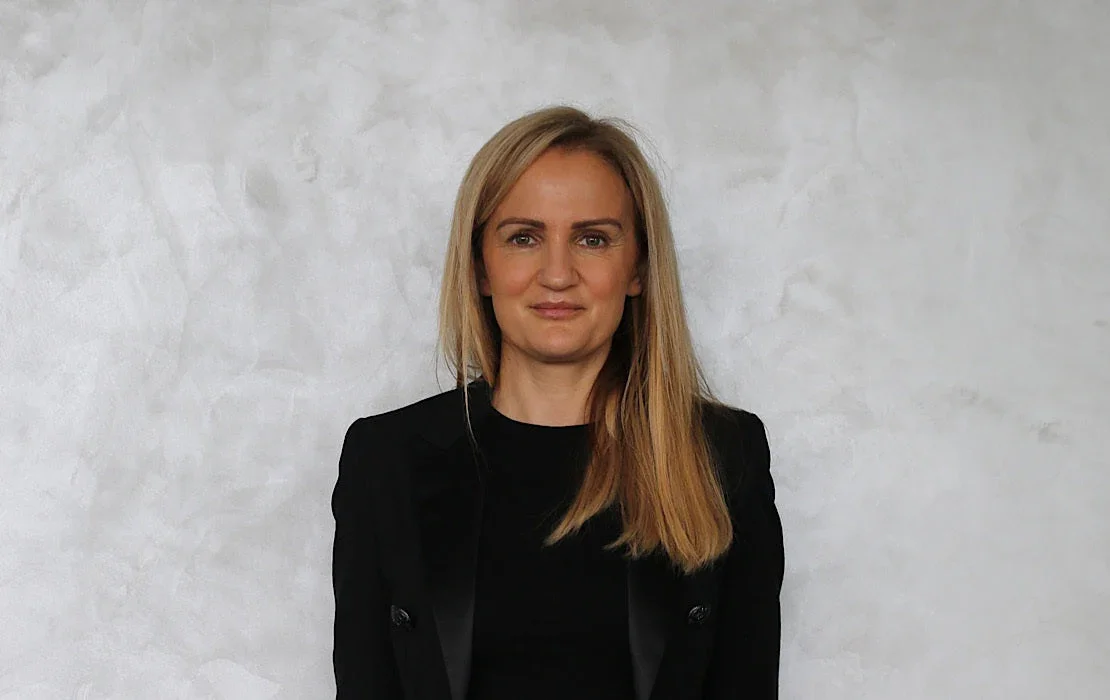Science, Supplements and Starting Up: How Lucy Goff Built LYMA Into a Global Wellness Brand
Founded by Lucy Goff, LYMA has redefined the supplement industry with a laser focus on efficacy, evidence and design. What started as Lucy’s personal quest to feel well again has grown into a category-defining brand trusted by celebrities, doctors and wellness experts worldwide. Ahead of her keynote at The FeelGood Summit on 9th October, Lucy shares the story behind LYMA, the challenges of building trust in a crowded market and why scientific rigour is the only non-negotiable.
1. You launched LYMA in 2018, what was the original spark that set you on the journey and how did you know you were onto something bigger than just another supplement brand?
The spark for LYMA came from a custom blend of evidence based nutraceuticals from longevity doctor, Paul Clayton. I was incredibly ill following the birth of my daughter and when no medicines could help me, he sent me the ingredients that now make the basis of LYMA today. From then, I wanted to create a supplement where the science actually mattered. LYMA stands out from the rest because we are clear that we dose at the clinically proven levels. This is supplementation without the lofty promises, but entirely based on evidence. So many brands made big promises but without real evidence. The spark came from asking, “What if we could create a supplement where the science actually mattered?” Once I started digging into the research, talking to experts, and seeing the potential to do something genuinely transformative for people’s health, I realised this wasn’t just another supplement—it could be a brand that redefined what wellness meant.
2. Wellness is a crowded space. From day one, how did you decide LYMA would stand out and not get lost in the noise?
We decided early that we wouldn’t run with the pack. We would carve out a new category for ourselves of proven ingredients and a supplement that doesn't compromise on quality or science. LYMA isn’t about trends or marketing fluff—it’s about measurable results. Standing out meant being rigorous, transparent, and unapologetically evidence-driven. When everyone else is chasing hype, the quiet confidence of real science naturally differentiates you.
3. Science is at the heart of LYMA, how did you go about building credibility in an industry where “wellness claims” often get side-eyed?
I said right from the start that the overarching message was that we were science backed and every claim had to be substantiated. I did my research and sought academics and medical experts leading in their fields. It was about surrounding ourselves with the right experts, publishing data, and never cutting corners. We invested heavily in independent research, peer-reviewed studies, and working with doctors who could validate what we were doing. Building credibility isn’t about clever marketing—it’s about letting the work speak for itself.
4. What’s been the toughest decision in balancing “the science” with “the marketing”?
It’s always tempting to simplify or exaggerate to sell, but that’s a slippery slope. The hardest moments were choosing to stay true to the science, even when it made marketing more challenging. You have to accept that building a credible brand sometimes means slower growth—but it’s the only way to build something that lasts.
5. LYMA has huge celebrity fans, Gwyneth Paltrow, Hailey Bieber, and others. Did you set out to attract high-profile advocates or did that happen organically?
It absolutely happened organically. We focused on creating a products that truly delivered. The right people noticed us because the product spoke for itself. Celebrity endorsement is a byproduct of excellence, not the starting point.
6. You’ve scaled LYMA into a global business in just a few years. What has been the biggest lever for growth - smart partnerships, DTC or something else entirely?
DTC has been huge because it lets us control the experience and really connect with customers. Partnerships, especially with like-minded wellness brands or retail platforms, have accelerated awareness, but the real engine has been building a brand people trust and want to share. We are readily available to our customers, helping them on their journeys and connecting them with expert knowledge if needed. The LYMA community is vocal and incredibly supportive.
7. What were some of the most surprising “missteps” along the way that turned into valuable lessons?
Oh, plenty! One was underestimating how much education consumers need when the product is science-heavy. Low-level laser therapy is completely cold and unique in its transformational power, so there continues to be significant unlearning of comparisons with damaging hot lasers and short-term LED devices. Another was thinking you could shortcut logistics or supply chains—you really can’t. Those early mistakes taught us the importance of patience, precision, and always learning from what didn’t work.
8. What’s the one piece of advice you’d give to founders trying to break into health & wellness now?
Don’t compromise on science or integrity. Profit margins are real but you won’t achieve your goals by watering down your product. Trends come and go, but credibility is forever. If your product is genuinely exceptional and backed by evidence, you’ll cut through the noise.
9. If you could go back and give 2018-Lucy one message about what was ahead, what would it be?
Buckle up. It’s going to be challenging, exhilarating, and sometimes terrifying—but every hard decision, every late night, every risk you take will be worth it. You have to learn to be your own cheerleader so trust the process and stay relentlessly curious.



